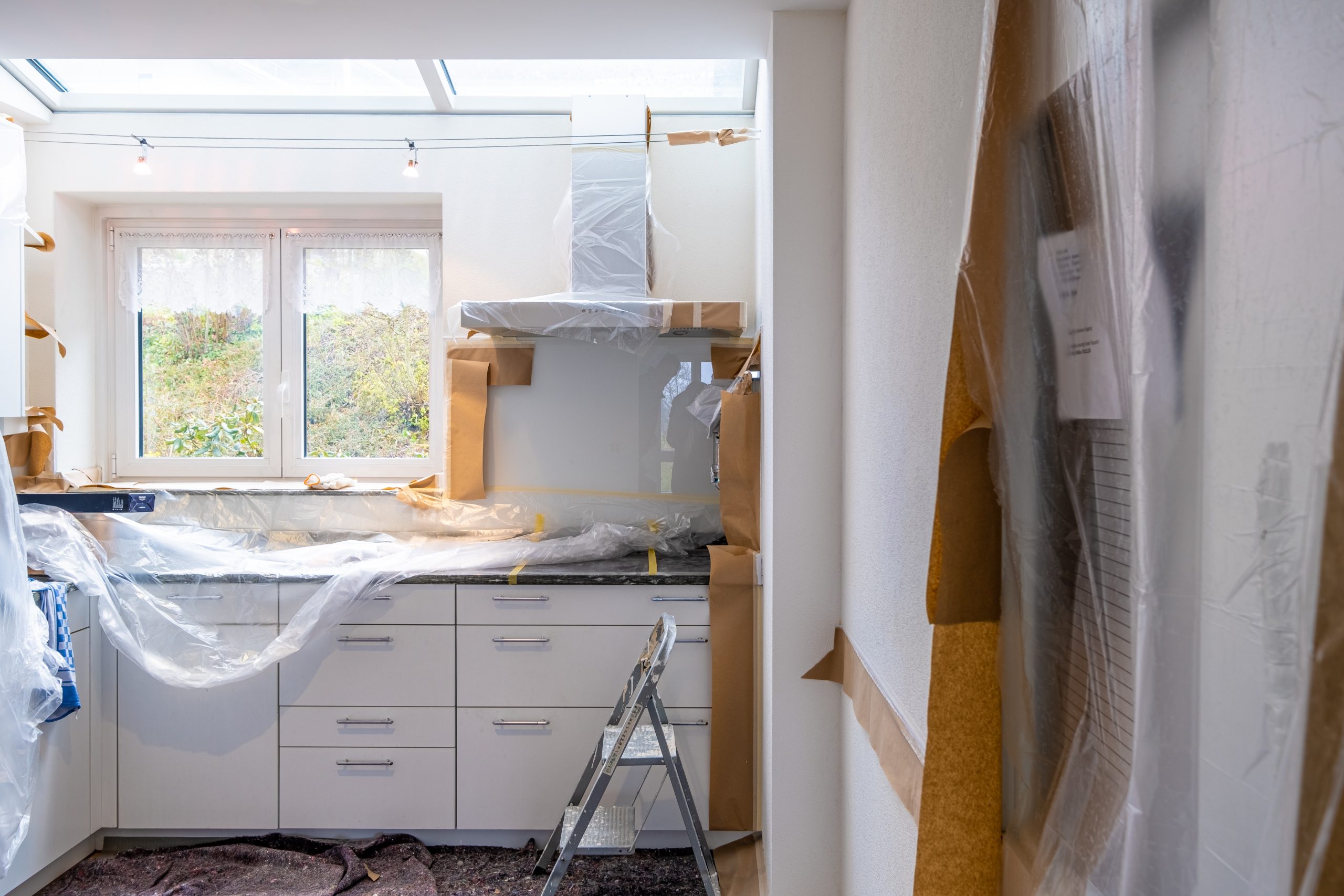Should I move out of my home during mold remediation?
Should I move out of my home during mold remediation?
We get this question a lot from homeowners who have discovered mold in their homes and need professional remediation to remove it. Should I try to stay while the mold is removed and my house is put back together, or find another temporary home?
There are several considerations in making this decision, and they’re not easy. Sadly, mold remediation is not “elective” or optional once you find it and discover the extent of mold damage. The traditional option of renovating “room-by-room” is not available here because if it has mold, it has to be remediated as soon as possible if you want to live in your home!
Why should I move out during remediation?
First off, If you’re not used to putting yourself first, you need to consider the value of your health. Staying in your home while mold is removed and materials are replaced simply may not be safe for certain individuals. The following are just some of the conditions that make it safer to leave:
Anyone diagnosed with Chronic Inflammatory Response Syndrome (CIRS) or Mast Cell Syndrome (MCS)
A compromised respiratory system or respiratory illness like asthma, COPD, emphysema, cystic fibrosis or any number of similar conditions. Why? Small particles and mold released into the air can directly affect your lungs and can be extremely dangerous for immuno-compromised individuals.
Heart conditions like arrhythmia, congestive heart failure, unstable angina, and any number of similar conditions. Why? Small particles and mold released into the air can directly affect your heart when they pass through your lungs into your bloodstream and can be extremely dangerous for immuno-compromised individuals.
Mobility handicapped people and the elderly may find it difficult to perform more cleaning and move around areas under construction
Work-from-home employees: construction noise can be distracting and unproductive
Families with young children and/or pets Even with protective barriers between you and the construction, you may find that your living space has increased dust on all surfaces, danger of children and/or pets getting into construction zones, and construction noise from 7am on any time during the workday.
Secondly, most remediators will say that moving out is the best option to minimize time and labor. According to Anna Williams, founder of Your Beautiful Home, there are multiple reasons. If you live at home during the work, the construction crew will have to take extra care to clean up each evening before leaving, as well as pack up their tools. This takes at least 30 minutes in the evening, plus time in the morning to unpack tools. (Move out during renovation or live through it? That is the question!) Also, they may not have the easiest access if you are living there, for instance walking and carting tools to the back door to avoid your living space. So, making it easier and quicker on the remediators means less time and money spent.
And of course, if the remediation requires extensive gutting to your home, it may be just too inconvenient to try to live there.
If you decide to leave, family and friends usually have the cheapest “rates” of any accommodations, but will your relationship survive the remediation? If your contractor has a reputation for completing projects on-time, staying with family may be a good option. Alternatives include:
Vacation rentals like Airbnb and VRBO
Extended stay suites
Sublets
Corporate housing/short-term rentals (contact a corporate housing agency)
If you move out, you’ll want to make sure to do the following:
Store food items in airtight bins
Discuss power requirements and when the power will be cut off (will it affect your freezer/any other climatization?
Place plastic dust covers on furniture, clothing and carpets if possible
Secure any areas of the home that contractors don’t need to access, take or lock up valuables
Notify your home insurance and security company
Check the “containment” that the contractor has set up. Be sure to discuss your HVAC system, which can broadcast mold and dust throughout your home if it’s not secured! If temporary ventilation is needed during extreme heat or cold, the contractor should be able to provide it.
Plan for extra weeks or months in case the remediation schedule doesn’t proceed as planned.
Why should I stay?
Finding alternate accommodations can be stressful if you have to stay with others, or expensive if you have to pay for a rental for your family. For these reasons, many decide to stay at home. Homeowners who decide to try to live in their home during remediation should know about the stresses they may endure! It’s not easy to have workers coming and going through your personal space. Here are just a few considerations:
Increased dust throughout the home
Increased noise during workdays
Temporary (or prolonged) power and water disruptions
Ventilation during extreme temperatures
Child safety
Parking issues–will there be many vehicles and/or a dumpster parked in front of your house?
Access to your kitchen
Access to at least one bathroom and shower or tub
Access to laundry facilities
Sufficient clean space for your family to sleep
Sufficient space to work if working from home
Delays to the schedule may make the remediation longer than expected
It’s a lot to consider. Of course, make sure you have as many options available as possible before deciding, including knowing if your insurance will pick up any of the cost for relocation. If not, you can check with local, state and federal agencies for assistance.
Staying at home during a mold remediation carries an extra risk: airborne mold. For this reason, we recommend purchasing extra HEPA filters to place around your living area and portable air sanitizers like the Air Angel and Germ Defender. Containment of dust and mold spores has to be top-notch–make sure that the contractor follows all safety standards for containment!
Working with the contractor on setting a budget and timeline should be a top priority. Many contractors may think that delays are acceptable if the homeowner is living in the home or with family–after all, you won’t be paying rent–but make sure that this is not their mindset by including deadlines in the contract, and penalties or cost reductions if they are not met.
By all means, ask for help whenever you can. Whether it’s taking a weekend getaway break, taking vacation during the remediation, asking for help with children and pets, or having dinner with friends more often, you’ll need to pace yourself so that your health and your relationships aren’t “gutted” either!
Photo by immo RENOVATION on Unsplash


